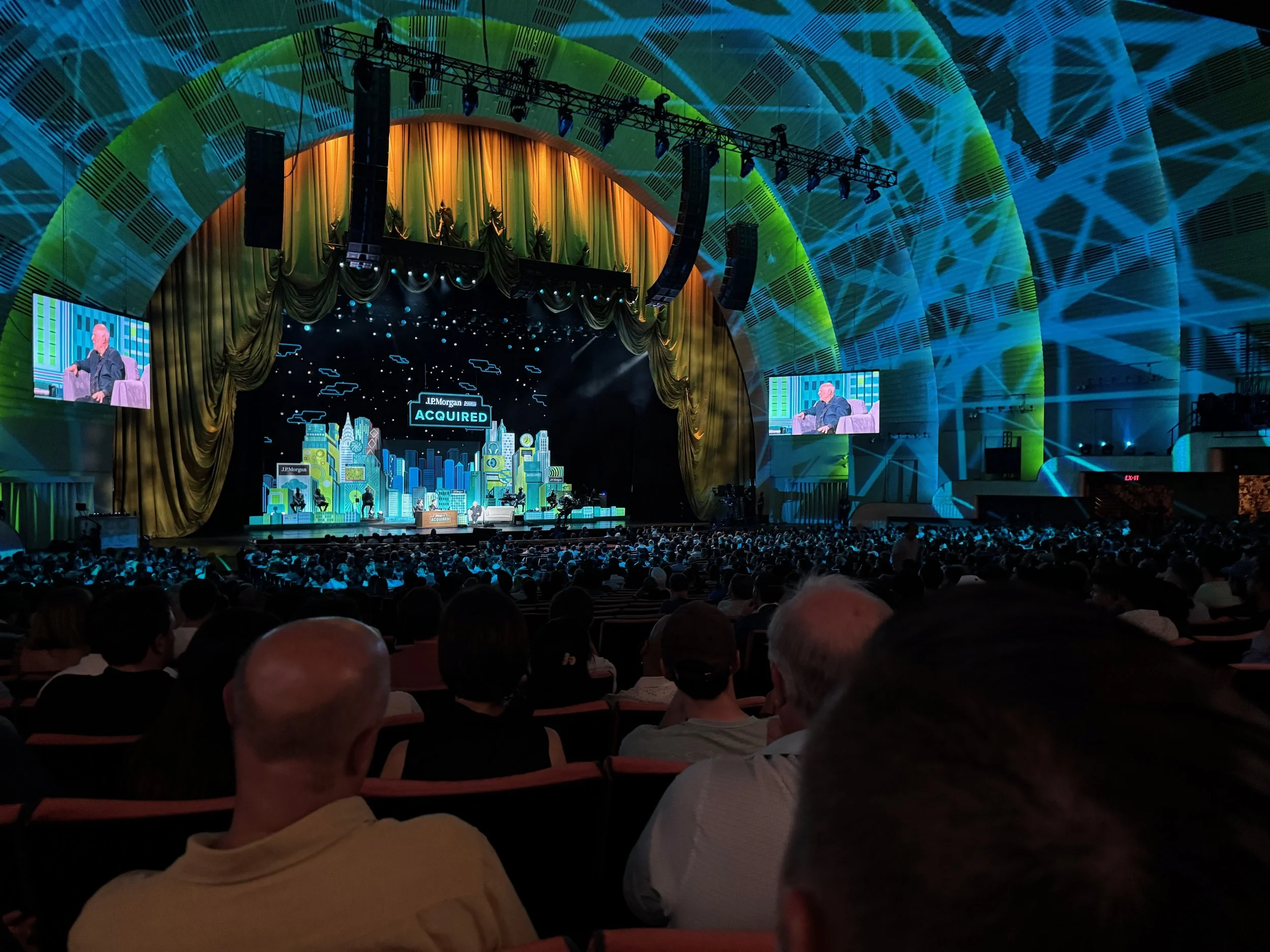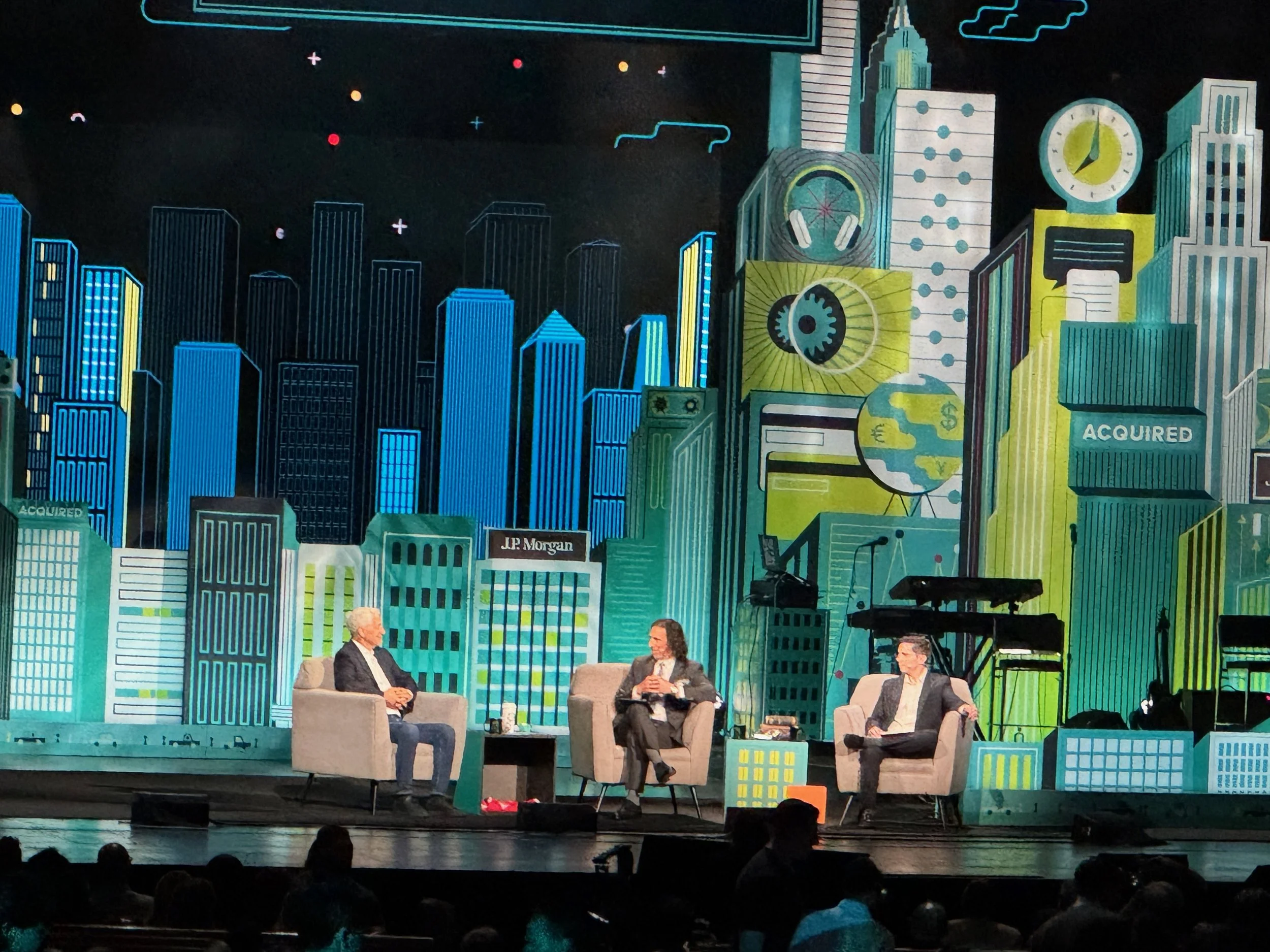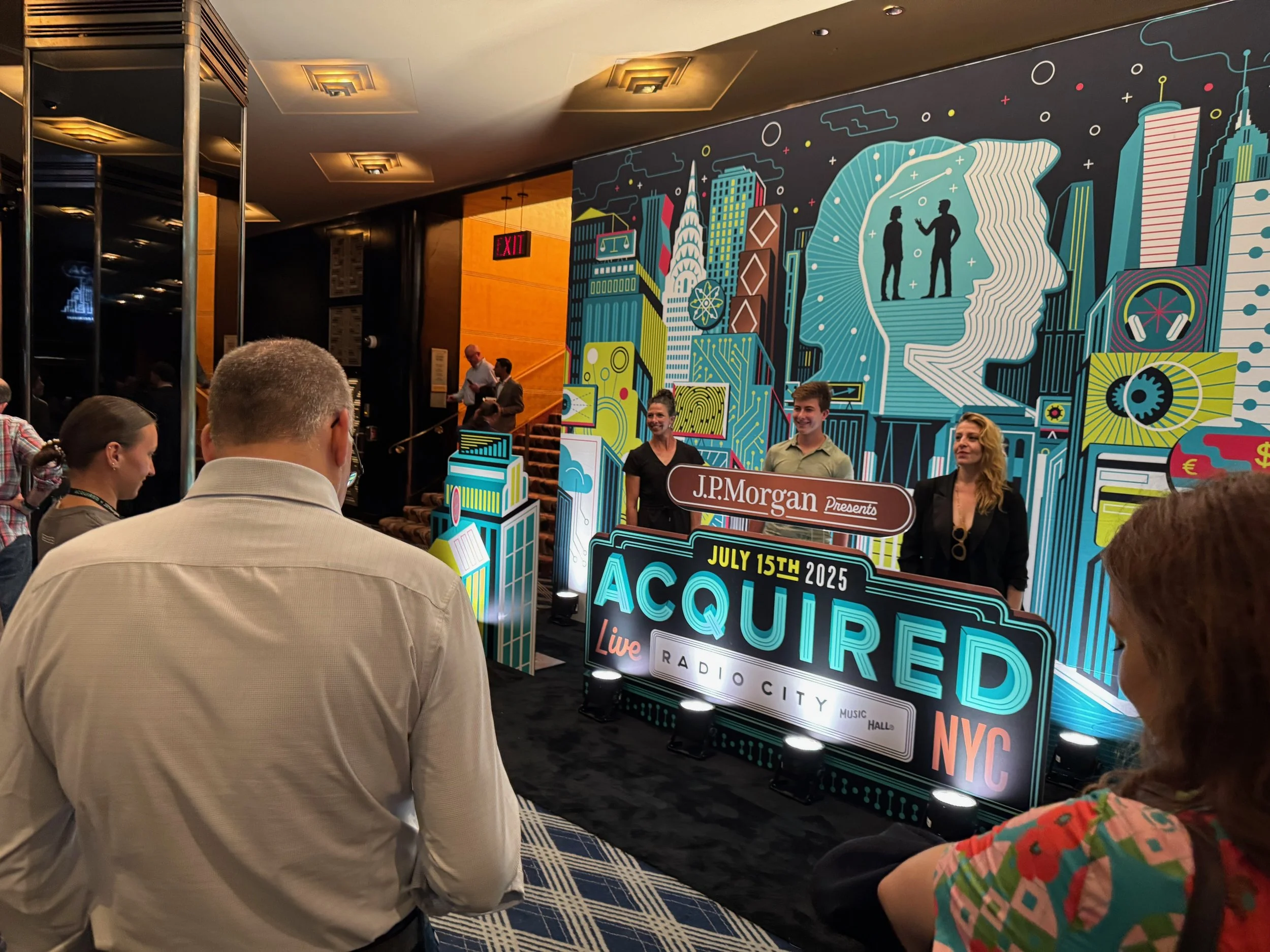How a Niche Business Show Became One of the Biggest Live Events in Podcasting History.
Radio City Music Hall, New York
On Tuesday night, I witnessed what may be the biggest live podcast event ever, certainly in the US. It happened at the iconic Radio City Music Hall, where 6,000 high-finance obsessives packed the room for a sold-out live taping of Acquired.
Yes, a sold-out live podcast. At Radio City. On a weeknight. In the heat of mid-July.
It was another signal that we’re entering a new era of podcasting, one where niche shows can scale into multi-platform media brands.
These days, conversations about podcasting are filled with terms like flywheel, omni-platform , and, of course, video. The spotlight tends to shine brightest on creator economy giants like Alex Cooper, Steven Bartlett, Mel Robbins, and Joe Rogan. They dominate the headlines.
But look over here.
While most of the attention stays fixed on the top 0.5%, Acquired has quietly become one of the most influential business podcasts in the world by doing things differently. No celebrity glitz (ok, occasional big-name executive guests). A solid but fairly modest social following. Just long-form, deeply researched storytelling about the rise of companies like Microsoft, Mars, IKEA, Google, Rolex, and even the Savannah Bananas.
Acquired has built a fiercely loyal audience that doesn’t just listen. They showed up .
The Acquired Model: Riches in Niches
JP Morgan CEO Jamie Dimon, hosts David Rosenthal, Ben Gilbert
I’ve long said: podcast riches are in niches. Acquired proves it in dazzling form.
Each episode runs about three hours, typically featuring two marvelous, thoughtful and affable hosts, Ben Gilbert and David Rosenthal, unpacking the origin stories of iconic companies. Indeed, it sounds niche, but their most-played episode, a 3-hour conversation with Starbucks founder Howard Schultz, has over 1.3 million plays. The YouTube version has racked up over half a million views.
This week’s live show at Radio City delivered business star power:
Jamie Dimon, Chairman and CEO of JPMorgan Chase.
Meredith Kopit Levien, CEO of The New York Times
Barry Diller, Chairman and CEO of IAC
A “cameo” from Andrew Ross Sorkin of CNBC and the NY Times
The production value matched the scale, with branded merch, a live band, and the kind of lighting design you’d expect at a headline concert. It’s only their second live show. The first one was at San Francisco’s Chase Center with tech giants Mark Zuckerberg and Nvidia CEO Jensen Huang with a similar size crowd in a much larger venue.
Even more mind-blowing? The entire lineup was a mystery until the guests walked on stage.
And still, every seat was filled at $100-$299 per ticket (or more).
That’s the power of fandom.
Step right up and get your picture taken
What It Means: The Flywheel Gets Real
How did Acquired turn a podcast into a full-scale financial media brand? By combining smart storytelling, authentic voices, and access to major business leaders. They built something beyond the show. It’s not just a podcast. It’s a multi-platform flywheel:
audio + video + events + community (including Slack) + merch + social + newsletter + product.
It’s the kind of blueprint innovators like Steven Bartlett and Max Cutler are pushing with FlightStory and PAVE, only this one didn’t start with celebrity, but more organically with two podcasters chasing stories they love.
During the event, the NY Times’s Meredith Kopit Levien expressed her company’s love of podcasts, “Podcasts, like the one you’re doing, have been great for the Times. They deepen engagement with people who already love the Times—and they bring in many new people who fall in love with the Times. Most importantly, they help us build a different kind of relationship with our audience.”
The Acquired monetization model is also different. There is one major sponsor, JP Morgan Chase, focused on a highly engaged, high-value audience. It’s not about mass reach. It’s about meaningful relevance.
The Takeaway: Podcast Brands Are Built on Loyalty
Podcasting is evolving. Acquired is a prime case study of the latest shift.
The buzz will always follow big names and flashy platforms. But as the world changes rapidly around us, Acquired reminds us that real, durable success in podcasting isn’t always about the noise at the top the charts.
It’s about creating something that matters to your core audience and delivering it consistently across formats, platforms, and experiences.
What happened at Radio City wasn’t just a win for Acquired.
It was another proof point: that podcasting is evolving from a scrappy audio format into a cross-platform, fan-powered business with real cultural weight.
And the biggest live podcast event of the year?
It didn’t come from a mainstream star.
It came from two financial storytellers building something remarkable one episode at a time.
What do you think?
Thanks for reading the Thought Letter. If it was passed on to you, please take a second and add yourself to the list. It’s free.



